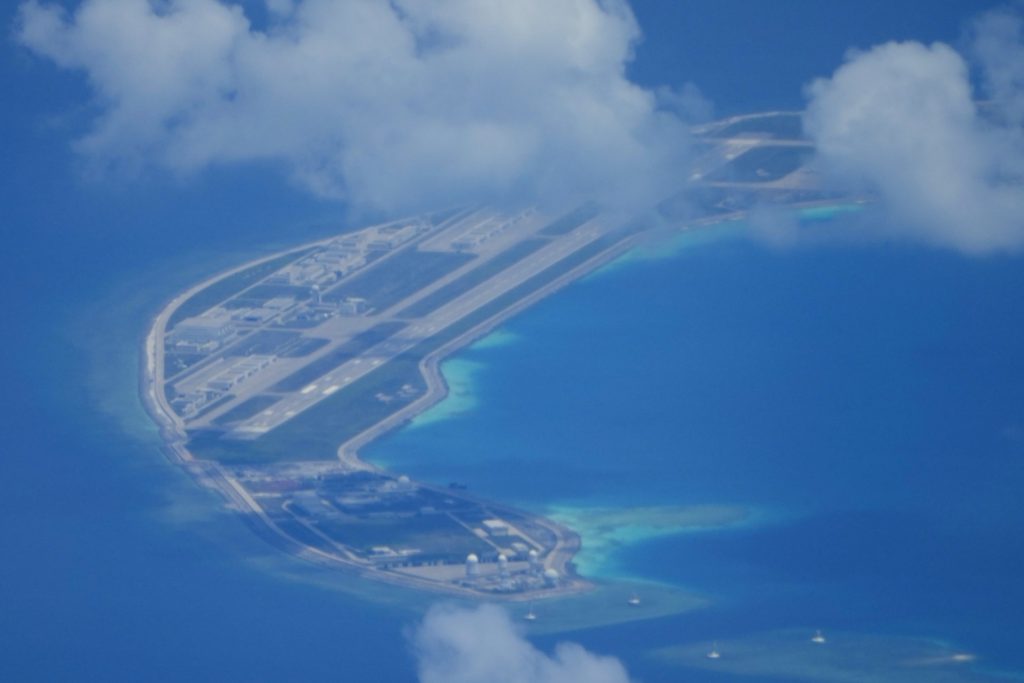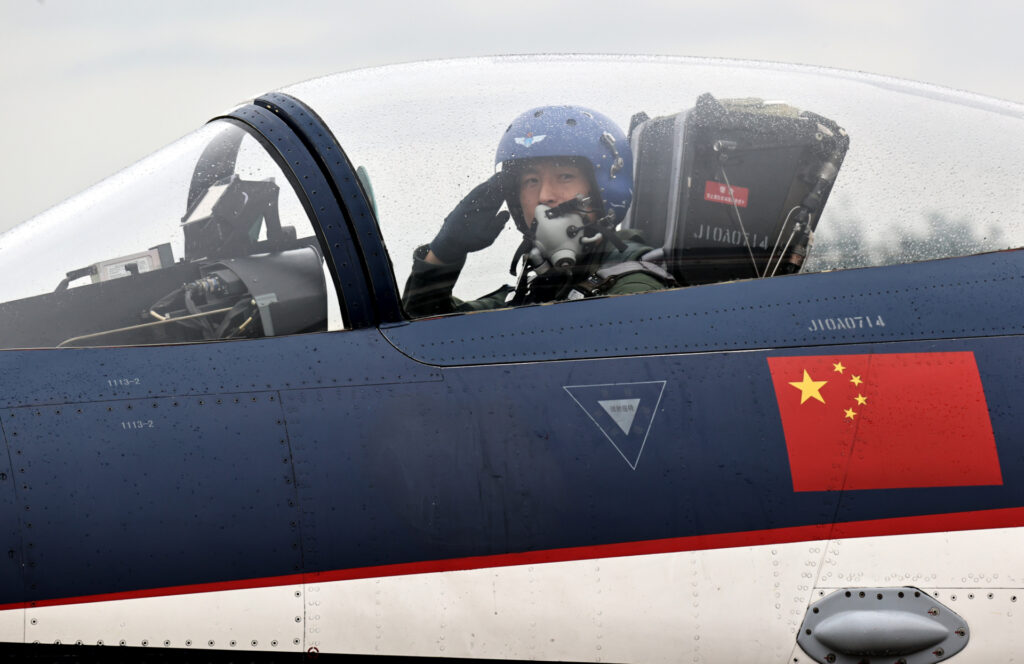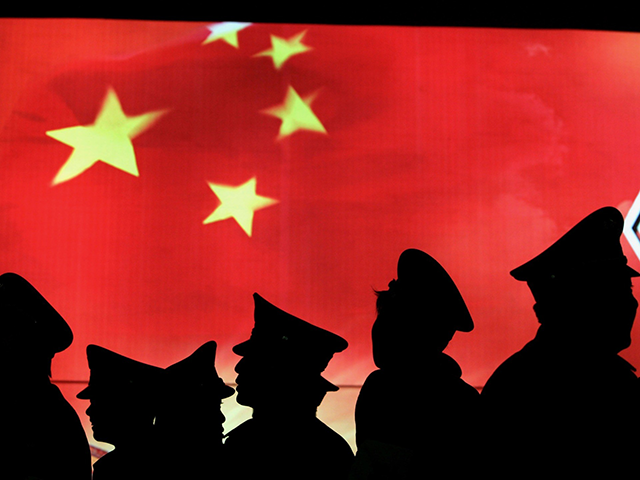The China National People’s Congress (NPC) announced on Monday that China’s military spending will be increased by 7.2 percent this year, the largest increase since 2019.
China’s total military budget will consequently increase to $225 billion, compared to $801 billion for the United States.
Radio Free Asia (RFA) picked up some fairly belligerent vibes from Chinese officials about the military spending boost, which is even more significant in light of China’s slowing economy and modest Gross Domestic Product (GDP) increase:
Outgoing premier Li Keqiang, in probably his final government work report, said that “external attempts to suppress and contain China are escalating.”
The army should “carry out military operations, boost combat preparedness and enhance military capabilities so as to accomplish the tasks entrusted to them by the Party and the people,” Li said.
…
“The increase in defense spending is needed for meeting the complex security challenges and for China to fulfill its responsibilities as a major country,” Wang Chao, a National People’s Congress spokesperson, told reporters in Beijing.
Li, a one-time contender for the top job, who was pushed out of the limelight as Xi amassed more power, will most likely be replaced as premier by a Xi loyalist after the NPC session concludes.
U.S. defense analysts told RFA that China’s increased military spending could be interpreted as a sign that “deterrence” against invading Taiwan or making wildly aggressive moves in the South China Sea is working. In short, China’s spending increase is big enough to keep its threats credible but not enough to overwhelm Taiwan’s defenses.

An airstrip made by China is seen beside structures and buildings at the man-made island on Mischief Reef at the Spratlys group of islands in the South China Sea are seen on Sunday March 20, 2022. (AP Photo/Aaron Favila)
Chinese state media, of course, presented the increased military budget as merely a “reasonable” and “restrained” effort to keep up with military spending around the world.
“Experts said that the defense budget boost is reasonable due to the country’s military modernization roadmap, the growing security threats in the world, as well as further optimized Covid-19 policies that encourage economic growth as well as more military diplomatic activities,” the state-run Global Times argued on Sunday.
The Global Times said the increased budget was needed to meet the modernization goals of the People’s Liberation Army (PLA) on the occasion of its 100th birthday in 2027.
“National defense modernization consists of mainly the development and procurement of new weapons and equipment, the maintaining of a high level of realistic combat-oriented exercises of the troops, as well as the improved welfare to military personnel,” the Chinese Communist paper said, listing more stealth fighters and a third aircraft carrier as items on the PLA shopping list.
The Global Times was crotchety about foreign suspicions that China’s big spending increases could mean more aggressive behavior from Beijing in the future:
The US and its allies including Japan have been provoking on the Taiwan question and potential military conflicts with China. The US military frequently send aircraft and vessels to conduct close-in reconnaissance on China’s doorsteps, sometimes trespassing into Chinese territorial waters in the South China Sea and provocatively transiting the Taiwan Straits, stirring up trouble. Japan officially broke away from its post-WWII defense-only principle in 2022 and has begun to procure offensive missiles including US-made Tomahawks that could reach foreign countries.
Many countries around the world are on military spending sprees in 2023, with the US topping the list with $817 billion budget for the Pentagon, more than three times than that of China. Japan planned $51 billion defense budget, which is record-breaking 26.3 percent higher than previous year. India is expected to raise defense budget by 13 percent. Other countries like the UK, France, Germany and Australia are also looking to boost defense spending, according to media reports.
The BBC noted on Monday that China consistently underestimates its actual military budget in data released to foreigners, and the actual spending increases have been more like ten percent per year for the past decade.

A pilot in a J-10 fighter jet of the Bayi Aerobatics Team of the People’s Liberation Army Air Force (PLAAF) salutes during the 2022 Changchun Air Show at Changchun Dafangshen Airport on August 29, 2022, in Changchun, Jilin Province of China. (Photo by Zhou Guoqiang/VCG via Getty Images)
The Wall Street Journal (WSJ) pointed out that for all of China’s insistence that its military budget increases are in line with the rest of the world, China has a disproportionately large standing army of 2.2 million and most of its increased spending is being pumped into “advanced technologies that help to project China’s power beyond its shores” — in other words, the equipment it could use to start a war.
The most likely target for large-scale Chinese aggression remains Taiwan.
“We do know, as has been made public, that President Xi has instructed the PLA, the Chinese military leadership, to be ready by 2027 to invade Taiwan, but that doesn’t mean that he’s decided to invade in 2027 or any other year as well,” CIA director William Burns observed last week.
On Monday, Taiwanese Defense Minister Chiu Kuo-cheng said his forces would be on alert this year for a “sudden entry” by Chinese ships and planes into Taiwan’s contiguous territorial space.
China’s menacing incursions into Taiwanese airspace and waters have thus far been confined to the Air Defense Identification Zone (ADIZ) around the island. Territorial air and sea space is much smaller and closer to Taiwan, extending only about 24 nautical miles from the coast.
Chiu said China is “making such preparations” for a major escalation in its provocative behavior and might be looking for an opportunity to “make trouble under a certain pretext,” such as visits to Taiwan by senior officials from allied nations.

COMMENTS
Please let us know if you're having issues with commenting.